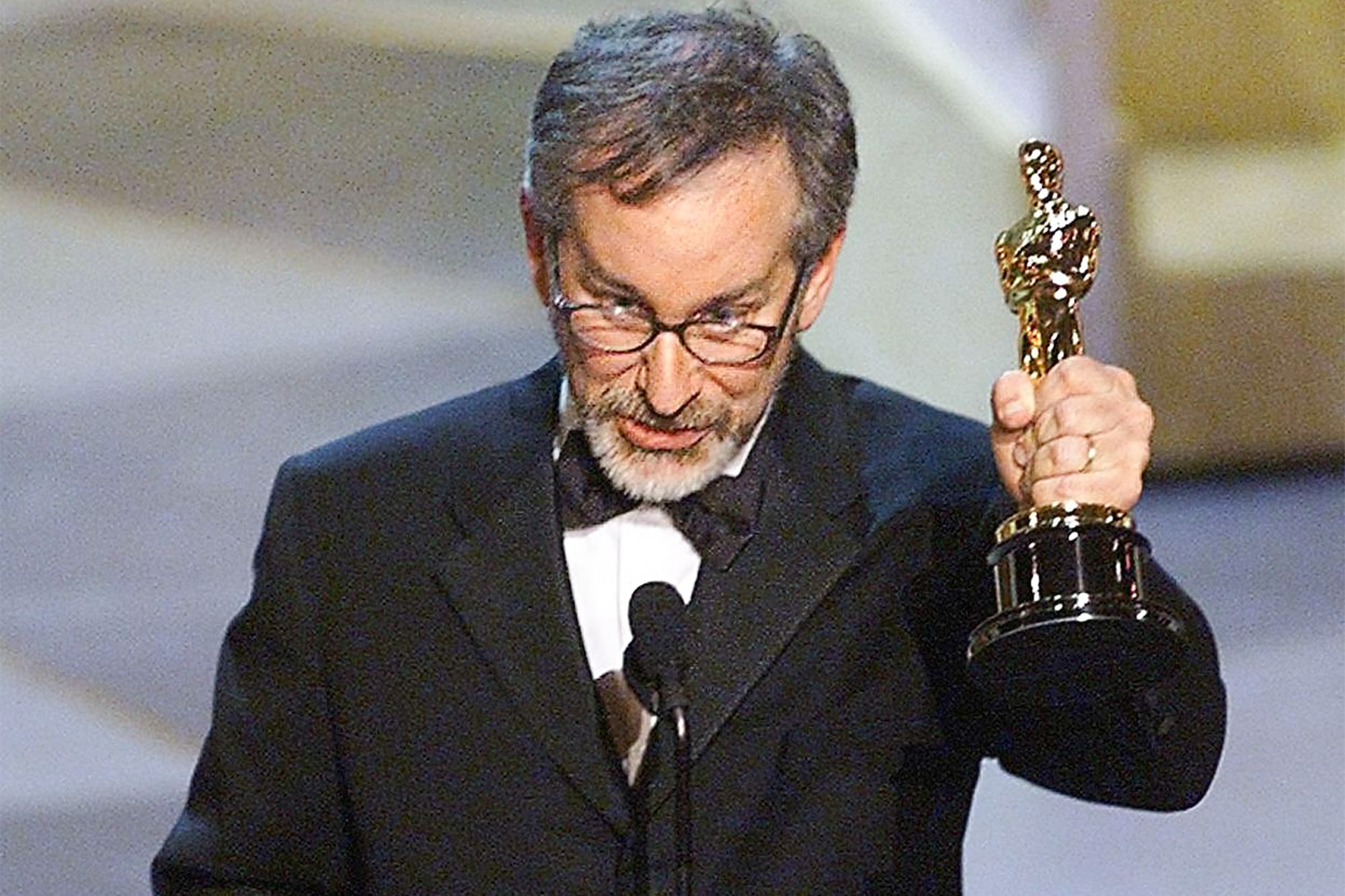Uncovering The Richest Movie Directors: Who Really Holds The Gold In Hollywood?
Have you ever wondered about the incredible fortunes held by the people who bring our favorite stories to life on the big screen? It's a pretty fascinating thought, isn't it? We often see actors and actresses in the spotlight, but the masterminds behind the camera, the ones truly shaping the vision, often accumulate vast amounts of wealth themselves. This piece is all about pulling back the curtain on the wealthiest movie directors, exploring just how they manage to build such impressive financial empires.
You know, it’s not always just about directing one hit film after another. For many of these creative powerhouses, their financial success comes from a mix of smart business moves, owning parts of their own productions, and sometimes, even from things outside of traditional filmmaking. We're talking about folks who have, in a way, turned their artistic talent into a serious business venture, securing a spot among the world's most financially comfortable individuals. It's really quite something to see how their work pays off.
So, we're going to peek into the world where creativity meets serious cash. We'll look at what makes these directors so rich, how they got there, and maybe even a little bit about what it means to be a top earner in the film business today. You might be surprised by some of the names that pop up, or by the sheer scale of their financial achievements. It’s pretty interesting, actually, to see how these directors stack up against other super-rich people we hear about.
Table of Contents
- How Directors Build Their Fortunes
- Spotlight on Some of the Wealthiest
- The Changing Landscape of Film Wealth
- Common Questions About Director Wealth
- What It Means to Be a Top-Earning Director
How Directors Build Their Fortunes
It’s a common thought that movie directors make a lot of money just from their film salaries, but that's really just a small piece of the puzzle. For the wealthiest movie directors, their financial success comes from a lot of different places, kind of like a complex puzzle with many parts. They're not just paid for their time on set; they often have a much deeper financial connection to the films they make and to other business efforts. This is, in a way, how they climb up the financial ladder.
Many of these directors, you know, they start by earning a fee for their work on a film. But the real money often comes from what's called "backend participation." This means they get a percentage of the film's profits once it starts making money, after all the costs are covered. So, if a movie is a massive hit, their earnings can just skyrocket, which is pretty amazing when you think about it. It’s a bit like owning a piece of a very successful business.
Then there's the whole world of intellectual property. A director who creates a popular film series or a beloved character might own some of the rights to those creations. This means they get paid every time those characters or stories are used in sequels, merchandise, or even theme park rides. That can bring in a steady stream of money for years, honestly, long after the original film has left theaters. It's a very smart way to keep the money coming in.
Beyond the Box Office
While a film’s success at the box office is certainly a big factor, it's far from the only way directors get rich. Today, there are so many other ways movies make money, like streaming deals, home video sales, and licensing to TV networks. The wealthiest directors often have deals that give them a share of these revenues too, which means their income streams are pretty diverse. It’s not just about ticket sales anymore, which is a significant change.
Consider, for instance, how a film might be licensed to a big streaming platform. That deal alone can be worth millions, and if a director has a piece of that, it really adds up. Plus, there’s the global market. A film that does well in one country might also be a huge hit in many others, and all those different revenue sources contribute to the director’s overall wealth. It's a very global business now, you know.
Some directors also get involved in other creative projects, like video games based on their films, or even stage adaptations. These ventures can bring in additional income and broaden their financial reach. It’s about leveraging their creative brand and their past successes into new opportunities, which is, in some respects, a very clever move.
The Power of Production Companies
A really big way many of the wealthiest directors build their fortunes is by owning their own production companies. This is a game-changer, honestly. Instead of just being hired for a project, they become the ones who develop, produce, and sometimes even finance the films themselves. This means they get a much larger share of the profits, and they have more control over the creative process too. It’s a huge step up from just being a director-for-hire.
When you own a production company, you can develop multiple projects at once, not just the ones you direct yourself. You can hire other directors, writers, and producers, and your company earns money from all of those projects. This creates a kind of ongoing business that generates revenue even when you're not personally directing a film. It’s a bit like building a whole factory that produces hit movies, rather than just being one of the workers on the assembly line.
These companies can also strike big overall deals with studios or streaming services, sometimes worth hundreds of millions of dollars. These deals give the company money to develop new projects, and the director, as the owner, benefits directly from that. It’s how some of these directors become, you know, more like media moguls than just filmmakers. They really do control a lot of the moving parts.
Smart Investments and Ventures
Just like many other super-rich individuals, the wealthiest movie directors don't just let their money sit around. They often make smart investments in various industries, sometimes completely unrelated to film. This could mean investing in technology companies, real estate, or even other startups. The "My text" talks about how booming tech stocks lifted the fortunes of some of the world’s top wealthiest people, and directors are no different. They're pretty savvy with their money.
Some directors have also ventured into other businesses, like owning restaurants, vineyards, or even creating their own media platforms. These side ventures can be incredibly profitable and add significantly to their overall net worth. It shows that their business acumen extends far beyond just making movies; they're quite the entrepreneurs, actually.
You might find that some of these directors have, you know, even invested in things like art collections or other high-value assets that appreciate over time. This diversification of their wealth is a key strategy for maintaining and growing their fortunes over the long term. It’s not just about making money, but also about making that money work for them, which is a pretty common strategy among the super-rich.
Spotlight on Some of the Wealthiest
When you look at today’s rankings of the wealthiest people globally, as "My text" mentions, you’ll find that a few legendary directors consistently appear on those lists. These are the individuals who have not only made iconic films but have also built incredible financial empires. Their names are often synonymous with both artistic achievement and significant monetary success, which is really quite a feat.
Take someone like George Lucas, for instance. His wealth didn't just come from directing the original Star Wars films. It came mostly from owning the rights to the franchise and building Lucasfilm into a massive production and special effects company. When he sold Lucasfilm to Disney, that deal alone added billions to his personal fortune. That was, you know, a truly monumental business decision that paid off incredibly well.
Another big name is Steven Spielberg. He’s directed some of the biggest blockbusters ever, but his wealth also comes from smart backend deals and his production company, Amblin Entertainment. He also has a share in Universal theme park revenues from rides based on his films, which is pretty clever. So, it's not just about the movies themselves, but all the ways those movies can keep generating money over time. He’s really good at that, you know.
Then there's James Cameron, who has directed some of the highest-grossing films of all time, like "Avatar" and "Titanic." His deals often include significant profit participation, which means he gets a huge cut of the billions these films earn globally. His innovative approach to filmmaking and his willingness to take risks have certainly paid off, financially speaking. It’s pretty clear he understands how to make money from his art.
These directors, and others like them, appear on lists like Forbes' annual rich list, which has been scanning the globe for billionaires since 1987, as "My text" points out. They’re a testament to how creative vision, combined with sharp business sense, can lead to truly staggering levels of wealth. It’s pretty inspiring, in a way, to see how they've done it.
The Changing Landscape of Film Wealth
The ways directors get rich are always changing, just like the film industry itself. What worked a few decades ago might be different today, especially with the rise of streaming services and new technologies. This means directors have to be pretty adaptable if they want to stay at the top of the financial heap. It’s an interesting shift, you know.
For example, the move to streaming platforms has opened up new opportunities for directors to secure big, upfront deals for their projects. Netflix, Amazon, and other services are willing to pay a lot to get top talent and exclusive content. This can provide a more immediate and guaranteed income stream compared to the traditional box office model, where success isn't always a sure thing. It's a pretty big change for the industry.
Also, as "My text" mentions, booming tech stocks have lifted the fortunes of many of the world’s wealthiest people. This trend affects directors too, especially those who are savvy enough to invest their earnings wisely in these growing sectors. Some directors might even get involved in creating content for virtual reality or other emerging technologies, which could be the next big source of wealth. It’s all about looking ahead, basically.
The film world is becoming more global, too. Directors who can make films that appeal to audiences all over the world have a much bigger chance of earning massive amounts of money. This means understanding different cultures and telling universal stories, which is, you know, a pretty powerful skill to have. It really broadens their potential for financial success.
Common Questions About Director Wealth
People often have a lot of questions about how movie directors become so wealthy. It's a topic that sparks a lot of curiosity, probably because it seems like such a glamorous and creative profession. Here are a few common thoughts people have, and some answers that might help clear things up a bit.
Do directors make more money than actors?
Well, it really depends on the individual, honestly. Top-tier actors can certainly command huge salaries, especially if they’re also getting backend deals. However, many of the wealthiest directors, as we've talked about, own their own production companies or have significant intellectual property rights. This means their income potential can be far greater and more long-lasting than just an actor's fee for a single film. So, in some cases, yes, a director can definitely make more.
How do directors get paid for streaming movies?
For movies released directly to streaming platforms, directors typically get paid through a few different methods. They might receive a large upfront fee for their services, which is pretty common now. They can also negotiate for a percentage of the film’s budget, or even a bonus if the film performs well in terms of viewership numbers. Sometimes, they also get a share of the overall deal that their production company makes with the streaming service. It’s a bit different from the old box office model, but still very lucrative.
Is it possible for a new director to become wealthy quickly?
It’s very, very rare for a new director to become wealthy quickly, to be honest. Building significant wealth in the film industry usually takes years of consistent success, smart business decisions, and often, owning your own content or company. A breakout hit can certainly launch a career and lead to better pay, but reaching the levels of the wealthiest directors typically requires a long track record and strategic financial planning. It’s more of a marathon than a sprint, you know.
What It Means to Be a Top-Earning Director
Being one of the wealthiest movie directors means more than just having a big bank account. It often signifies a level of influence and creative freedom that most filmmakers can only dream of. These directors have the power to greenlight their own projects, work with the best talent, and tell the stories they truly want to tell, which is pretty cool. They’ve earned that kind of control, you know.
Their financial success also allows them to take risks on unconventional projects or to invest in new technologies that push the boundaries of filmmaking. This can lead to groundbreaking cinema and further solidify their legacy in the industry. It’s a kind of virtuous cycle where wealth enables more creative freedom, which can then lead to more success, which is really quite something.
For those interested in the world of global wealth and how people build their fortunes, you can learn more about the richest people in the world on our site, and link to this page for more insights into celebrity net worth. The journey of these wealthiest movie directors really shows how passion, talent, and smart business decisions can come together to create truly remarkable financial success, which is a pretty inspiring thing to see.

55 Best Movie Directors of All Time and Their Greatest Films

Top 10 World’s Wealthiest Directors – Got Gamers

Best Movie Directors of All Time: The Essential Guide